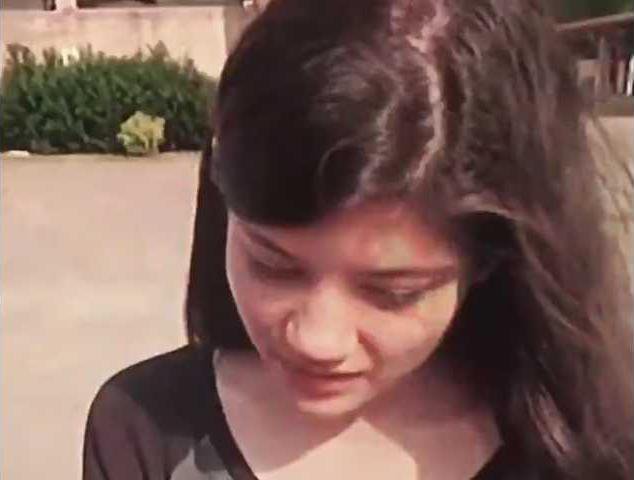A students reaction to Fridays fatal shooting at a Texas high school went viral on Friday.
In the video, a local reporter for ABC-13 in Texas asks the girl, Santa Fe High School student Paige Curry, about her reaction to the incident.
I was very, very scared, Curry said. I had to have someone keep me calm. I managed to keep calm through it all. There was another girl who was just freaking out. They were struggling really hard to keep her calm.
The reporter asked, "Was there a part of you that was like, 'This isn't real, this would not happen in my school?'"
Curry, on the verge of tears, responded, "No ... it's been happening everywhere; I always kind of felt like eventually it was going to happen here too."
See the heart-wrenching video here.
Ten people died in Fridays shooting, most of whom are believed to be students. A male student was taken into custody, according to The New York Times.
As Vox reported, Curry has a point about not being surprised about the shooting. Recent research has indicated that both the frequency and number of fatalities of school shootings have been on the rise.
But theres a more fundamental point here that goes deeper than these numbers. Imagine being Paige Curry. Imagine coming out of a shooting at your high school, a place that is supposed to be a safe place for learning, and feeling terrified but somehow unsurprised, Voxs Zack Beauchamp wrote. Imagine how normal, how routine, the threat of a school shooting has to have become for you to have that reaction after such an ordeal. I dont know about you. But for me, a nation whose kids see themselves as targets as well as students is a nation that is doing something profoundly wrong.
In the video, a local reporter for ABC-13 in Texas asks the girl, Santa Fe High School student Paige Curry, about her reaction to the incident.
I was very, very scared, Curry said. I had to have someone keep me calm. I managed to keep calm through it all. There was another girl who was just freaking out. They were struggling really hard to keep her calm.
The reporter asked, "Was there a part of you that was like, 'This isn't real, this would not happen in my school?'"
Curry, on the verge of tears, responded, "No ... it's been happening everywhere; I always kind of felt like eventually it was going to happen here too."
See the heart-wrenching video here.
Ten people died in Fridays shooting, most of whom are believed to be students. A male student was taken into custody, according to The New York Times.
As Vox reported, Curry has a point about not being surprised about the shooting. Recent research has indicated that both the frequency and number of fatalities of school shootings have been on the rise.
But theres a more fundamental point here that goes deeper than these numbers. Imagine being Paige Curry. Imagine coming out of a shooting at your high school, a place that is supposed to be a safe place for learning, and feeling terrified but somehow unsurprised, Voxs Zack Beauchamp wrote. Imagine how normal, how routine, the threat of a school shooting has to have become for you to have that reaction after such an ordeal. I dont know about you. But for me, a nation whose kids see themselves as targets as well as students is a nation that is doing something profoundly wrong.








